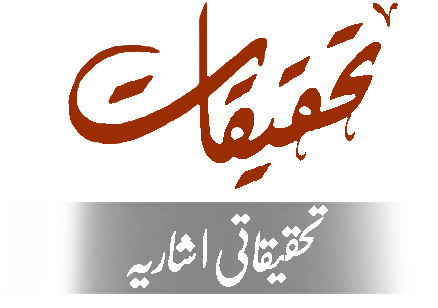تلخیص
This study interprets one of the preliminary aspects of the institutions of culture and economy in the context of Pashtuns’ codes of life, “Pashtunwali”. The study employs the analytical tool of the Circuit of Culture to analyze culture, economy and their true interpretation. The analytical tool gives hints that most of the codes of Pashtunwali are earlier interpreted, by non-Pashtun, Colonial and/or contemporary war literature writers, in very traditional way to explain somewhat wrong and biased moods of interpretations for the purpose to support exploitation of the land and resources of Pashtuns and create stereotyping of Pashtun communities. This study interprets that the institution of culture is wholistic in nature that provides cultural meaning to most of the constituting blocks of Pashtunwali. Similarly, economic underpinnings of Pashtunwali are sub-sets of Pashtun cultural institutions that is evolved for and has the likelihood to enhance, strengthen, promote, appraise and even challenge some of the components of cultural attributes of Pashtunwali. Thus, the interpretation shows that cultural norms of Pashtunwali based on economic positions of individuals/families paves new ways of cultural cohesion and economic attributes in Pashtun communities. The cultural accumulation of new trends of modernity, politics, class structure and urbanized-metropolitan variants of cultural intrudes in Pashtun societies are linked with economic wellbeing in different stratum of contemporary Pashtuns. The implication of the study unveils strong orientations of culture as an integral part of Pashtunwali to have accommodative trends of cultural development in Pashtuns’ code of life consistent/aligned with globally modern practices of cultural institutions. The economic institution of Pashtunwali provides foundation of sustainable socioeconomic development to Pashtun communities.
Dr. Aziz Ahmed, Miss Zeenat Razzaq, Abdul Samad. (2019) “Employing the Circuit of Culture Approach to Interpret the Institutions of Culture and Economy in the Context of Pashtunwali”, Takatoo Journal, Volume 11, Issue 22.
-
Views
446 -
Downloads
40


